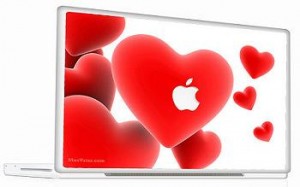- April 5, 2011
- Posted by: admin
- Categories: Blog, Business Dynamics, Communication, Uncategorized
According to Kevein Roberts, Lovemarks are those charismatic brands people get emotional about. Take away a brand, people find its replacement. Take away a lovemark and people protest.
Rationale behind why apple lovers’ support this argument is that, Apple understand their dreams. Know what they want and when they want it, and create great experiences that make apple a part of their lives.
According to a study, students at Stanford University were asked how they would feel if Apple were to go bankrupt tomorrow. The majority of respondents answered they would feel very sad. On the other hand, when asked the same question about another company (I won’t actually name that company here); the students said they wouldn’t be much bothered about it.
The study is simple but clearly reveals a fact: Apple’s biggest asset is the devotion and attachment of its customers. Furthermore, Apple is a ‘Love Mark’ that receives a great deal of affection from its customers.

Apple is quite successful in its ability to make a strong emotional connection with its customers. Because from a company’s point of view, we all want to be regarded as special to our customers and develop an emotional connection with them.But still this statement is argued by many people who don’t think that apple is a lovemark and it is said so because of Apple’s unique marketing campaigns that have taken apple to this level.
For this reason, to become a lovemark, brands need to have a long term love affair with their customers. Apple has come to the stage where it has surpassed all the barriers in moving itself from a good brand to a lovemark.
What do you think, what makes Apple a Lovemark?
2 Comments
Comments are closed.

Apple is EXTREMELY Good at making their Customer’s Happy.
I’ve yet to see a bumper sticker “I love my HP” or “I love my toshiba laptop”.
Apple resembles a cult and as such engages in emotional blackmail. There have also been accusations of anti-competitive behaviour, price switching and using contract manufacturers that allegedly operate under sweatshop conditions. According to Secunia vulnerability rankings, Apple leads all other vendors in reported vulnerabilities for 2010, thereby dispelling the myth that Apple products have no viruses.